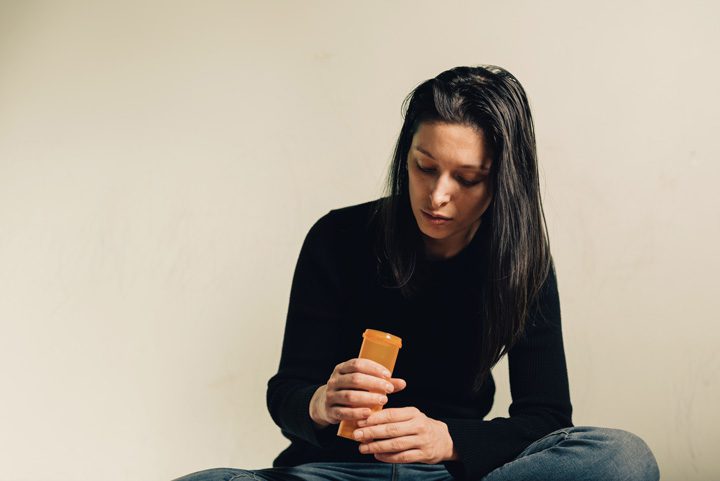7 Symptoms of Prescription Drug Abuse
Medications are an important part of our healthcare. You shouldn’t stop taking them unless your doctor tells you to. Yet, there’s a growing prescription drug addiction epidemic happening in many areas. In some situations, there’s a fine line between prescription drug use and abuse. Could you or your loved one be misusing prescription drugs and not realize it?
Knowing the Risk Is the First Step
Most people don’t recognize how easy it can be to cross the line into addiction. An estimated 18 million people – or 6 percent of all U.S. residents over the age of 12 – misused prescription drugs at least once in 2017. The 2017 National Survey on Drug Use and Health also found that 1.5 million people misused tranquilizers, over a million used prescription stimulants, and 271,000 people misused sedatives for the first time that year. To be clear, most of these people were using drugs prescribed to them, not drugs they secured illegally.
If a doctor prescribes a pain killer or mood enhancer to you, does that mean you’re going to become addicted? No. However, the use of these medications does put you at a higher risk for developing an addiction if you misuse the drug.
The Most Common Signs of Prescription Drug Abuse
Take a look at these common signs that prescription drug abuse may be occurring.
#1: Your Thoughts and Actions Center on Drugs
It doesn’t matter what’s happening during the course of your day: you think almost constantly about using your medication. You wonder when your next dose is and are impatient for it. If the medication is on your mind during the day more than work, family, or school, that’s an indication of potential addiction.
#2: You Hide Your Drug Use
Your family members don’t know how many pills you’re taking. You hide secondary prescriptions from your spouse. You may even find yourself denying your use of the drugs at all. You hide pills at work, home, and school. You feel some guilt. You don’t want people to know you’re using because you don’t want to be judged or told you have a problem.
#3: You Believe You Can Stop
This is perhaps the simplest of signs of addiction. You tell yourself you can stop using whenever you want. Or, you feel as though you only use pills for the pain relief they offer – you don’t believe you use because of an addiction. Denial is very common in those with an addiction.
#4: You Notice Physical Changes
Caregivers often are the first to notice these changes. Your body is changing because of the constant drug use. This can present in various ways depending on the substance abused. Common changes include:
- Weight gain or loss that’s significant and sudden
- Insomnia
- Bloodshot eyes or enlarged pupils
- Changes in hygiene habits
- Changes in breathing or heart rate
- Slurred speech
#5: You Experience Mood Changes
It’s also quite common for men and women to feel changes in their moods. Family members can often see this happening, too. Some examples include:
- Feeling aggressive
- Violent behavior that’s not characteristic
- Mood swings
- Deep depression
- Agitation
Mood changes can occur while taking the drug or between doses. They can also occur when a person uses a different type of drug to get the same results.
#6: You Lose Mental Stability
If you are using prescription medications for pain and have an underlying mental health condition, the medication can make the mental health symptoms much worse. Overusing drugs prescribed for mental health can also lead to instability. Symptoms may include:
- Hallucinations
- Delusions
- Unexplained paranoia
- Unexplained anxiety
- Heightened sense of loss of control
If you or a loved one are experiencing any of these symptoms, get immediate help. They can indicate a life-threatening emergency.
#7: You Behave Recklessly
Another common sign of advanced drug use is reckless behavior. A person with an addiction to prescription drugs may need to seek out additional resources as their body comes to tolerate the drug. This may mean turning to heroin or fentanyl. Misusing or supplementing prescriptions can lead to reckless behavior, including driving under the influence, engaging in intense arguments, poor decision-making, and a lack of care about one’s health.
Let Us Help
Does it sound like you or your loved one is experiencing prescription drug addiction? At Victory Addiction Recovery Center in Louisiana, we provide you with the tools to take back your life. Don’t overlook these signs of addiction.
Share This Post:








